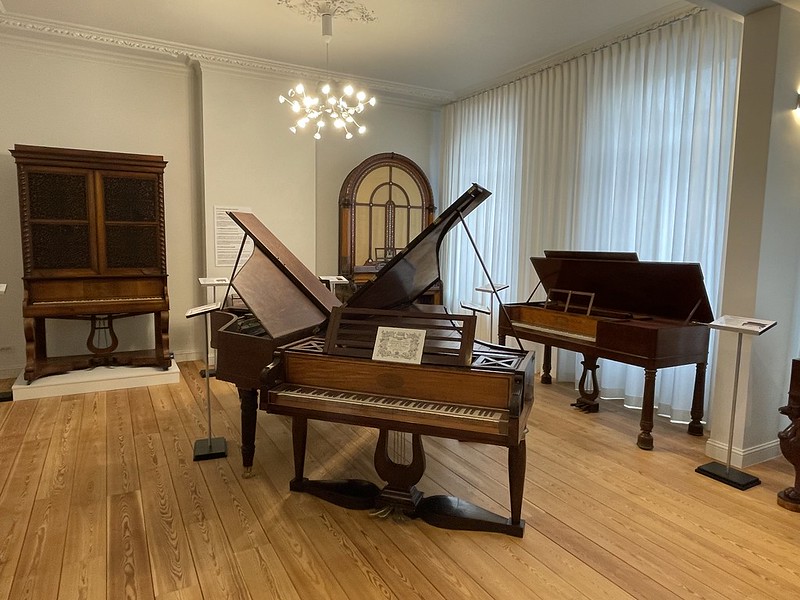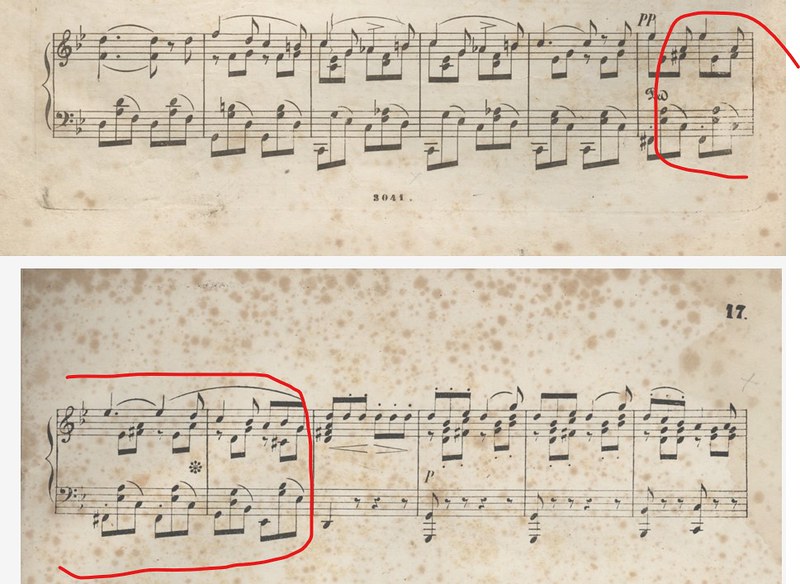I’ve been working a piece of music lately – one of Mendelssohn’s Gondellieder – I’ve already written about it here – and in the context of some content I have seen on the question of exam preparation and general repertoire learning, I want to comment some discussions around how long it should take you to learn a piece of music. This piece has taken longer than I would like and there are a couple of reasons for this. I intend to figure out a way to do a youtube video on this later.
I tend to think a lot of questions like this come from adult learners with not a lot of confidence. I seem parallel questions from other people who “played until they had to give up for practical/academic reasons” about 20 years ago and are concerned it is too late to pick it up again. Is it really gone?
I’ve also been looking at online teachers who teach to one or other of the grading system. The teacher in question does excellent supporting youtube videos as does the teacher whose video about how long it should take to be learning pieces so arguably, they are arguing from experience and I am arguing from my reality which might be difficult. The Mendelssohn has taken longer than I expected from the outset and even so I am not in favour of blanket statements that the process of learning the notes and perfecting the delivery of said piece should only take 8 weeks for the most part provided you practice X time per day. Otherwise it is too hard. Alternatively, the idea that you should be able to prepare exam pieces in 4 to 6 weeks is equally ambitious.
Most people will, at some point will try a piece that is beyond them. I did that with Rach II at 15 and I put crazy time into parts of its second movement when I was 17. There are a lot of things which feed into the learning process but above all, it doesn’t matter how hard or how easy the process is (honestly, Bach’s WTC Prelude in C is baby level easy for me at this point and I will write about that some day as well).
In one respect, the most important thing for any pianist is to develop a consistent habit that works for them. It’s 9.50pm here as I write this – most evenings I am playing at this point for a while. We put a lot of weight on people’s shoulders. Do Hanon, do scales, do repertoire “in line with your ability” from whence a load of questions about what grade pieces are I guess as people try to work out what is in line with their ability.
For myself, I have a couple of criteria around the learning of the piece and they are as follows:
- do I like the piece. I’m 50. The exam system put me through hell with pieces I hated when I was about 14 or so.
- how long is it? The longer the paper, the longer to learn
- What key is it in? D flat minor? Eh…we won’t be winning any races here.
- Are there any obvious dragons here? Like big chords and polyrhythms?
Then I do the following:
- Try to sight read it through, both hands together.
- Break it into parts and identify initial targets.
- Work through the individual parts, hands together for preference, but hands separately where it’s not an instinctive piece of music. Unless it’s Bach. Bach, really feel you should play hands together if at all possible.
- Work through the transitions between parts. I cannot emphasise how important this is.
You cannot estimate how long this is going to take in terms of weeks. You need to put into context what your life is like – as an adult, it’s often stressful in a way around practice (often a lot of people around you don’t see why you would want to do this) and there are interruptions. Let’s take me with the Gondollied above.
- Yes I like it, check
- Two pages, so short, check. I mean, that Sonatina by Beethoven is longer I think.
- Key: G minor, not completely comfortable but generally okay,. Scales ahoy
- No obvious dragons
That word “obvious” is doing a lot of heavy lifting there.
What was interesting about the next steps is the site read went okay. The parts went okay. They mostly went hands together, slow. And then we got to the transitions between the broken down parts/sections. Specifically, we got to this across page 1 to 2 of the piece. (see sheet music here)
when I see that the movement from the last bar on page one to the first bar on page 2 has accounted for about 60% of the effort attribute to this over the last three months, I am not exaggerating. When I did the initial read through, when I did the dragon hunt, nothing. Not a squeak. Regularly playing it, however, revealed a fingering problem which alone caused issues.
But the point is, of the piece 4 pieces I have on my schedule at the moment, this is otherwise, not difficult. Absent those three bars, we are talking about a piece that I flew through.
Is this a kind of self justification? Well obviously? Does it counter two experienced teachers? To some extent, I think there is a difference between having a go at Ballade No 1 by Chopin (uhem) and running into an unexpected barrier on a much easier piece.
In a way, I think “how long to learn this” “how long should it take” questions miss a point. I love this piece of music, even after playing it 1000 times and regularly getting stuck at the start of page 2. I’m doing grade 6 purely because I was learning this piece anyway (but found 3 other pretty pieces). But there needs to be a question around the objectives. Why do you want to do this? Do you recognise the opportunity cost? What if we meet an unexpected problem, can we work around it? What represents success here? Why is there a deadline – are you not enjoying the process?
For me, in the background, it has taken considerably less time to master the parts, and the transitions are linked with memory issues (perimenopausal woman, and brainfog and I don’t worry about things taking a little longer for that reason) and for the other two pieces, the sight read was okay, there are a couple of dragons in terms of bass chords. The last remaining example is a Bach two part invention.
I don’t think it’s reasonable to expect someone to learn these four pieces in 4-6 weeks. I also don’t think it’s reasonable to state that if pieces cannot be learned in that time frame, you shouldn’t be learning them. What I do think, however, is that we should have honest discussions about what repertoire we are working on, why, where the pitfalls are and when we would like to be ready to do it.
Ultimately, learning something is a process and if you do not enjoy the process, you will never get out the other end either way. Artificial time limits are not going to solve that.


